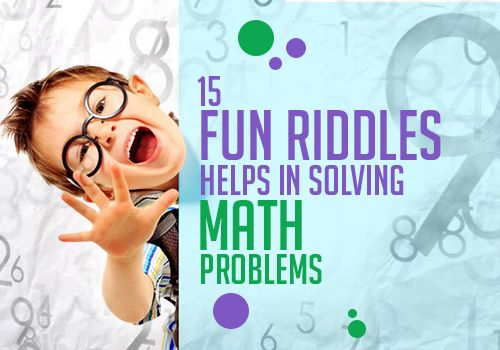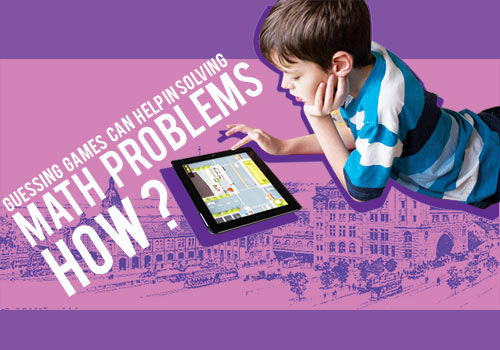You as a hands-on parent or tutor will not be doing a favor to your wards by being there for them at all times. Constant intervention from parents and teachers can work well with the learning abilities of kids when they begin to rely on your instructions. In the event you are not around, they will find it impossible to solve problems and buckle under pressure. For all such guardians who are aiming to bring up kids with minimum instructions, these are the creative ways in which you can help them fix their problems and become problem solvers for life; independently.
- The Concept of Healthy Space
Notwithstanding the fact that it is the dream of every parent and teacher to be there for kids during distress, constant intervention can work against their intention. It is hence the need of the hour to gift your kids an environment of healthy space.
Kids of all ages should be allowed to make mistakes and experiment through trial-and-error. Giving them a freehand will equip them with problem-solving skills when they try different ways and means to solve their issues.
- Creative Games Encourage Kids to Solve Their Problems
Playtime is the most attractive period for kids to play with different ideas. Give them a set of building blocks and encourage them to make something out of them. Allow them to imagine and come up with different options to use the material.
Kids will not only be excited to play with such materials but will also hone their abilities to weave magic through imagination. It is through this sense of imagination that they will be poised to take on life’s challenges and move forward independently. In fact, all such situations will help them realize the fact that problem-solving is within them only.
- Encourage Your Kids to Make Informed Choices
Kids should be encouraged to make their own decisions. In doing so, you as a guardian should let them come up with a set of informed choices. In order to have data points regarding choices, kids should first gather information about the problem. Collation of pertinent information about the available options is an integral part of decision-making process.
Alongside building strong foundations about study topics, it is when kids are tuned to making informed choices that they will be well-equipped to deal with difficult situations. Allow them to participate in discussions so that they will be informed about real choices coming from the group. This practice also enables kids to be mindful of the moral and social implications of their decisions in daily life. Erecting roadblocks in a situation can also help kids to come with a reasonable solution; all by themselves. Thus, with this helping hand, kids will not get upset with tricky situations but will look out for options that can solve their issues; the practical way.
- Keep the Fun Element in Problem Solving Alive
The domestic front of a kid should facilitate him to face difficulties. But this practice should be followed by keeping the fun element alive. It is the responsibility of the guardians to impress upon kids that problems are a part and parcel of everybody’s lives and that they should be faced with a positive attitude and a smile.
Alongside helping kids to develop rational thinking, you can also introduce them to problem solving activities in a group. Making use of such activities in the form of games will engage kids to arrive at a solution to a problem; the fun way. When every kid is assigned a particular role to play, he/she will be motivate to give the role the best shot and come up with a solution. This fun-filled way of looking at problems can become the strongest motivator in kids.
- Inspirational Stories Can Do the Trick
Stories about heroes can become strong instruments to learn about problem solving skills. Parents and teachers should work hard in teaching problem solving skills to kids so that they can be on their own. Listening to such stories about different characters who have risen above their problems and have emerged as victors will have a positive bearing on kids.
Reading aloud such narrations will create a strong imprint on the hearts and minds of young kids alongside helping them simulate the situations that have made the protagonist the hero of the novel. Kids will try to put themselves in the shoes of the hero and will either imitate or come up with other options to overcome the obstacles that were mentioned in the story.
- The Excitement of Learning Together
Since you as an adult would be dealing with a host of problems in your daily lives, you can introduce your kids to the ways in which you tackle your daily issues. When you involve your kids into your problem-solving sphere, your children will begin to see you in action. They will keenly observe the step-by-step process in which you address your issues and gain wisdom. Observation is a great tool that can help your kid sharpen his/her problem-solving skills, by picking up essential tips through experiences.
You can engage your child in some ‘do-it-yourself’ domestic problem. When your kids get involved in such things, they will be able to learn innovative means to fix many domestic issues using simple ways.
- The Methodical Approach to Problem Solving
You as a guardian can teach your wards the most fundamental problem-solving steps in a methodical manner. Here is it:
- Firstly, let them identify the problem they are facing as the bigger picture
- The next step is to break the problem into small and manageable tasks so that each task is simplified
- The last step is to tackle each part independently, one by one until the problem is solved
This methodical approach to finding solutions to problems can help kids to apply the same principle for bigger problems that life throws at them.
- Impress Upon The Power of Failure
Kids who are taught to embrace failure will not take defeat to heart. On the contrary, they will begin to learn from the mistakes they have committed in the past with a well-informed bent of mind. They will understand the fact that, to arrive at a solution they need to fail many a times.
Every time kids fail, you as a guardian are allowing them to try again and learn from their previous failures. This in itself is a great learning lesson for kids to try and fail until they eventually come up with a solution to their problem. Only when your child faces failures, he/she will make the most of experiential learning towards solving their problems on their own.
- Constantly Seek The Help of Your Kids in Problem Solving
Parents and teachers should demonstrate a high level of confidence in the problem solving abilities of their wards. A healthy environment in a school or home is conspicuous of elders constantly seeking the assistance of kids to solve problems. To practice this, guardians can look at brainstorming as a solid tool for kids to come up with different alternatives for a problem.
Pose a scenario to them as a problem you are facing and seek their opinions. When kids are involved in trying to solve your problems, they will go about it with a feeling of warmth that their opinion means a lot to their guardians. Attaching creativity to all their suggestions, kids will surprise you with their innate problem-solving skills in more ways than you can imagine.
- Embrace the Unfamiliar
Science can vouch for the power of the unfamiliar. This is backed up by the theory that unfamiliar surroundings like eating out in a restaurant with a different cuisine, reading a new book or watching a movie of a completely different culture can help your kids.
Kids will try to welcome the unfamiliar things into their accustomed environment while being empathetic to the views of other people. This concept of handling with the unfamiliar scenarios will help your kids hone their creative problem-solving skills, eventually exciting them to make any part of the globe their cozy home.
Key Takeaways
Creative problem-solving is a methodical process that calls for a close examination of the troubled situation, checking out various alternatives and eventually arriving at a solution to the challenge. However, this creativity does not come naturally to any one of us. This skill should be sharpened by stretching your imagination and thinking about the various scenarios concerning the problems you are currently facing. Team this imagination with rational thinking. When you look at your problems objectively, you will be helping your mind to come up with solutions. This entire process requires training which has to start early on. Childhood is thus the best time to introduce your kids to problem-solving skills so that they are better prepared with anything life throws at them.


